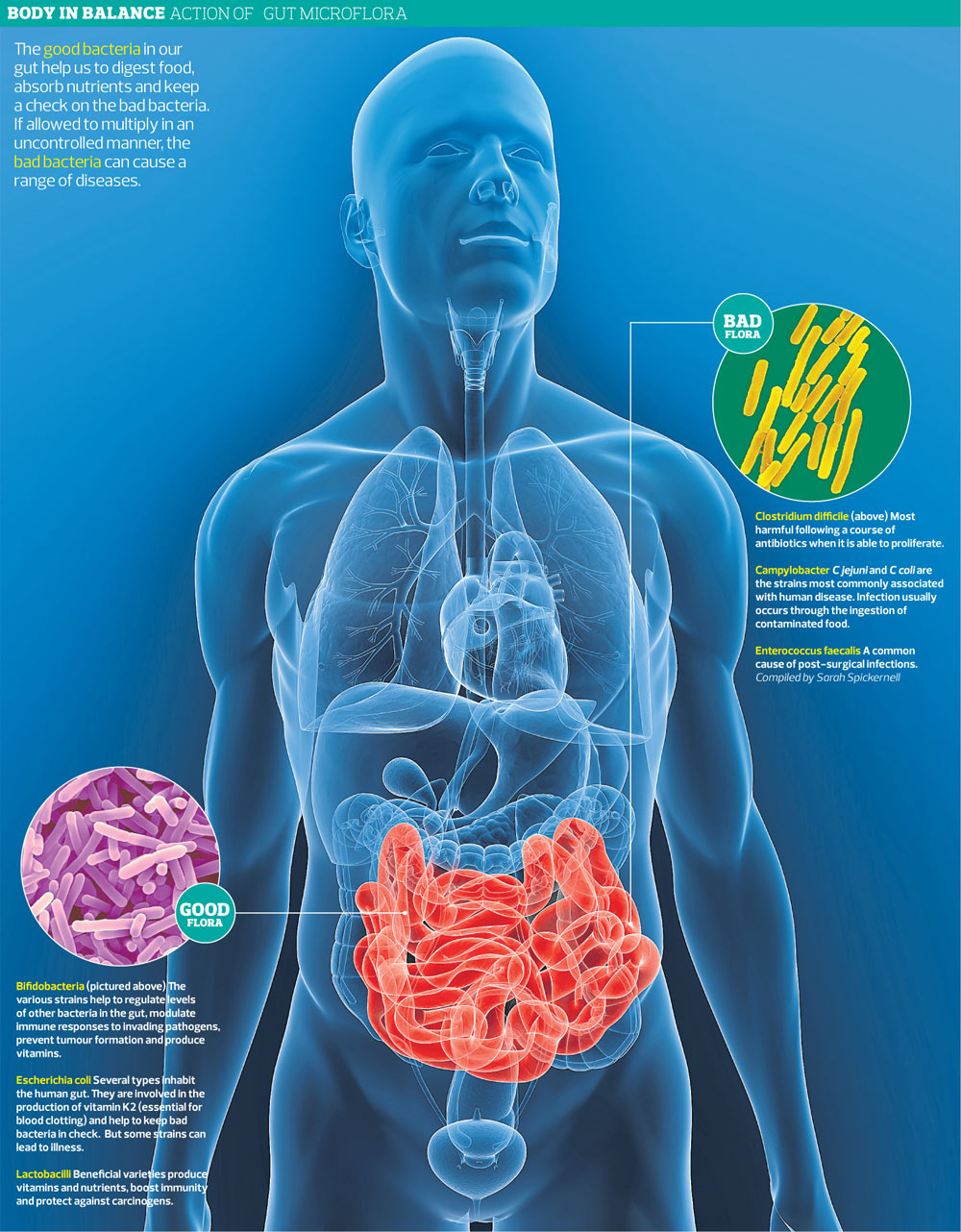There
is a growing body of evidence that finds a correlation between the health of
the microbiome and its effect on mood, behavior, and memory. Dysregulation in
the microbiome is often seen concurrent with states of anxiety, depression,
memory and concentration impairment.
 |
Microbes
change in response to changes in the diet. This includes microbes that produce
inflammation. For example Bacteroidetes carry lipopolysaccharides in their cell
walls. Lipopolysaccharides promote inflammation. Some studies indicate that a
high fat diet can decrease the amount of Bacteroidetes in the colon. This of
course would be a diet high in healthy fats (see my 3/23/16 post on foods that
improve mood).
Prebiotics and probiotics can have an effect on the metabolic processes
within the microbiome. Research is ongoing in the effort to discover how
best to influence the complex relationship between the individual, their
microbiome, and the food and nutrients consumed. Limiting or eliminating
processed foods, sugar, and transfats is a great place to start. An organic,
whole food diet can be supplemented with probiotics and fermented foods.
Research
has found that consuming fermented milk is associated with changes to midbrain
activity, which processes emotion and sensation. Women who consumed fermented
milk showed differences in resting brain activity and improved ability in task
performance. Fermented milk includes yogurt, cheese and kefir. These are each
fermented with different types of microbes.
The
food we eat is converted by intestinal microbes into bioactive compounds that affect
your health. Prebiotics and probiotics can modulate the immune system in the
intestine, actually improving your immune function. The production of short
chain fatty acids is one of the best examples of the way the microbiome works
in concert with your immune system.
Research
has demonstrated that butyrate and acetate, two short chain fatty acids produced
by the microbiome, are intimately involved with immune response. Butyrate
improves the function of helper T-cells and improves the strength of the
intestinal lining. This is important because a damaged intestinal lining, also
known as Leaky Gut Syndrome has been implicated in many types inflammation
including autoimmune diseases. Acetate also works to keep the intestinal tract
in good health, it does this by reducing the rate of infections. It seems to
work particularly well to keep E coli in check.
Tomorrow we'll look at specific microbes and what we can eat to help them thrive.
No comments:
Post a Comment